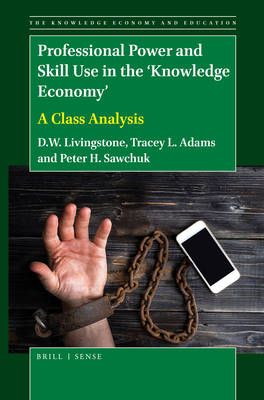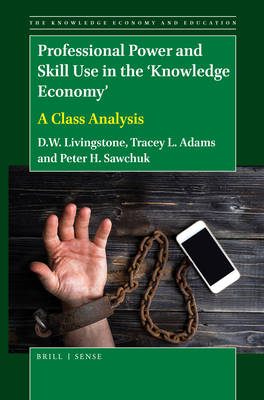
- Afhalen na 1 uur in een winkel met voorraad
- Gratis thuislevering in België vanaf € 30
- Ruim aanbod met 7 miljoen producten
- Afhalen na 1 uur in een winkel met voorraad
- Gratis thuislevering in België vanaf € 30
- Ruim aanbod met 7 miljoen producten
Zoeken
Professional Power and Skill Use in the 'Knowledge Economy'
A Class Analysis
D W Livingstone, Tracey L Adams, Peter Sawchuk
€ 259,45
+ 518 punten
Uitvoering
Omschrijving
This is the first systematic analysis of the class structure of professionals. Their growing numbers, including mainly non-managerial professional employees as well as self-employed professionals, professional employers and professional managers, have been conflated in most prior studies. In this book, evidence comes from a unique series of large-scale surveys since the 1980s as well as recent comparative case studies of engineers and nurses. A primary focus is on issues of job control and skill utilization among these knowledge workers widely regarded as pivotal to the sustainability of knowledge economies. Professional employees in particular are found to face declining job control, diminishing use of their skills and increasing barriers to continuing learning. There are many original benchmarks here to serve as guides for further studies on professional classes, job design and training strategies in advanced capitalist economies.
Specificaties
Betrokkenen
- Auteur(s):
- Uitgeverij:
Inhoud
- Aantal bladzijden:
- 304
- Taal:
- Engels
- Reeks:
- Reeksnummer:
- nr. 12
Eigenschappen
- Productcode (EAN):
- 9789004463066
- Verschijningsdatum:
- 30/04/2021
- Uitvoering:
- Hardcover
- Formaat:
- Genaaid
- Afmetingen:
- 155 mm x 235 mm
- Gewicht:
- 632 g

Alleen bij Standaard Boekhandel
+ 518 punten op je klantenkaart van Standaard Boekhandel
Beoordelingen
We publiceren alleen reviews die voldoen aan de voorwaarden voor reviews. Bekijk onze voorwaarden voor reviews.








